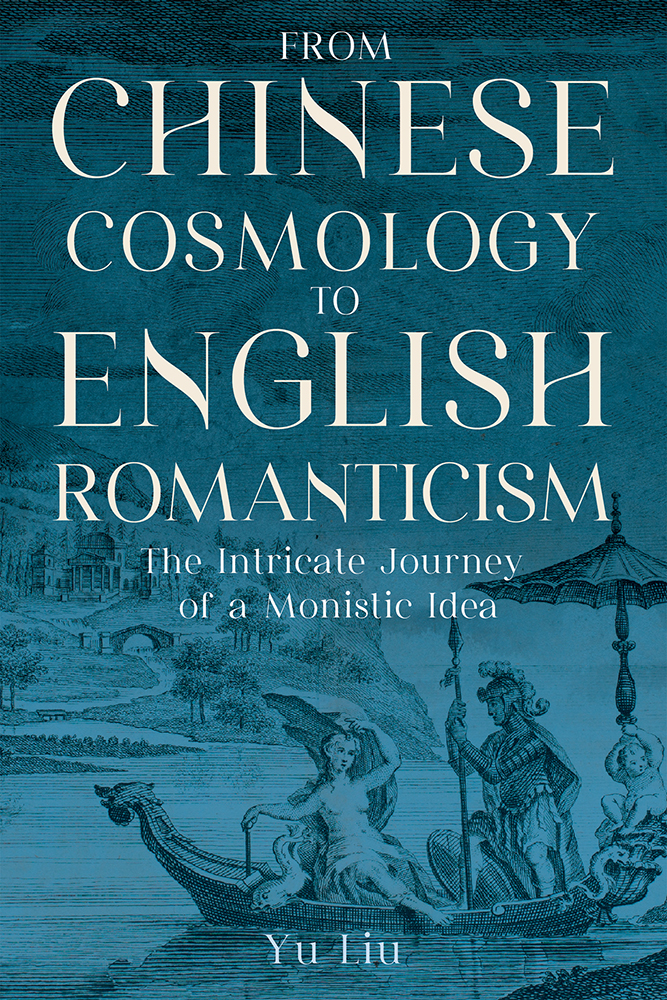Black History Month Sale: 40% off all books, plus FREE SHIPPING on all U.S. orders over $50 | Use code JBHM26

Size: 6 x 9
Pages: 264
Illustrations: 12 b&w halftones
Yu Liu
The inclusion of this book in the Open Carolina collection is made possible by the generous funding of
"Yu Liu offers a groundbreaking analysis of cross-cultural exchange by exploring the influence of Chinese philosophical traditions on English art, gardening, and literature up to the Romantic period. This is a must-read for scholars interested in Anglo-Chinese relations between 1600 and 1830."—Robert Markley, W. D. and Sara E. Trowbridge Professor of English, University of Illinois
"In this deeply learned study, Yu Liu traces a 'relay of ideas' that made their way from Chinese philosophy to Western Romanticism, transformed along the way in Spinoza's thought and in theories of English landscape gardening. A tour de force of intellectual history, his book shapes a persuasive story out of disparate strands whose significance deepens when seen in a unifying perspective."—Leo Damrosch, Ernest Bernbaum Research Professor of Literature, Emeritus, Harvard University
"A thoughtful and imaginative attempt to trace the migration of the ancient Chinese cosmological unity of heaven and humanity to seventeenth-and-eighteenth-century Europe via the China Jesuits, Spinoza, Coleridge, and Wordsworth, leading to the redesign of English gardens and Romantic poetry."—D. E. Mungello, professor of history emeritus, Baylor University
"In his powerfully original monograph, From Chinese Cosmology to English Romanticism, Yu Liu upends the all-too-familiar asymmetry of theorizing Chinese culture through a Western conceptual structure. He mounts a carefully documented and compelling argument that the 'idea' of the persistent Chinese organismic worldview captured in the language of 'humanity's unity with nature' set its roots in the antinomian European Enlightenment thinkers as early as the complex Rites Controversy, and then spreads out as a root system through the heretical philosopher Spinoza to shape British Romanticism in all of its parts."—Roger T. Ames, Peking University
Copyright 2026
Website By Morweb.org